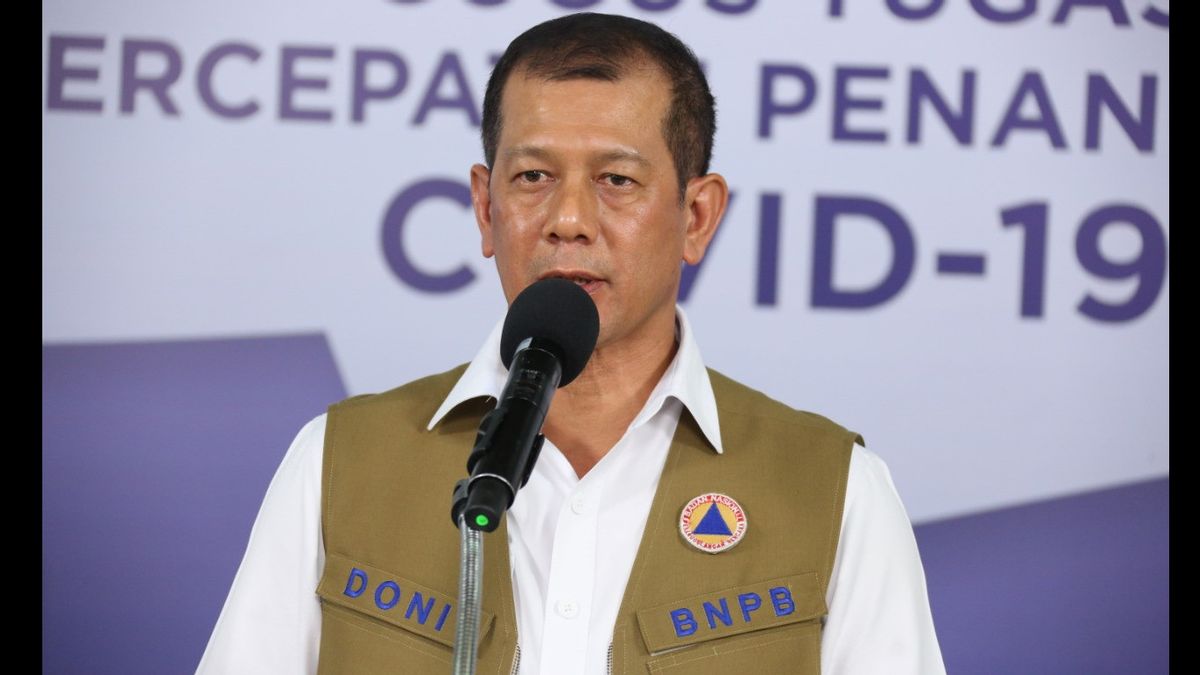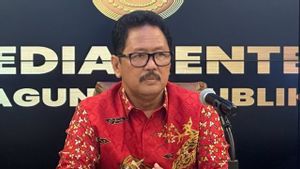JAKARTA - The government will disburse funds worth Rp.695.2 trillion for the handling of the COVID-19 virus. Part of this fund will be used for the procurement of personal protective equipment (PPE) and reagents.
Chairman of the Task Force for the Acceleration of Handling COVID-19, Doni Monardo, confirmed that his party would use the funds transparently. In fact, he asked the KPK and Polri to tap his cellphone as a form of surveillance.
However, Doni's request regarding wiretapping could not be done. This is because tapping activities cannot be carried out that easily. There are rules that must be obeyed by law enforcers in wiretapping.
University of Indonesia Criminal Law Observer, Gandjar Laksmana Bonaprapta said that wiretapping by the KPK or the Police must be based on an alleged criminal act. If there is no suspicion that a criminal act has been committed by a person, then it cannot be done.
"Wiretapping is due to a suspected criminal act. It cannot be arbitrary. Begging is not permitted," Gandjar told VOI, Wednesday, June 17.
He said, even during the investigation stage, tapping was not allowed. In the process of investigation, investigators are only doing monitoring to collect evidence. Wiretapping can only be done after there is evidence of a suspected criminal act, if necessary.
"If tapping is needed, then tapping is carried out. So tapping is the last suggestion to reveal crimes," said Gandjar.
Thus, said Gandjar, Doni should not have asked the KPK and Polri to tap his cellphone. It would be better, if the aim was to ensure that there was no misappropriation of the budget, Doni would record all his remarks so that they could become evidence of budget use.
"If Pak Doni wants to be cooperative, he just records every conversation himself. If asking to be tapped is even strange," said Gandjar.
Wiretapping rulesReferring to the existing regulations, wiretapping is regulated in Law No. 36/1999 on telecommunications. Article 40 contains that it is prohibited for any person to carry out tapping activities of information transmitted through telecommunications networks in any form.
However, an exception is given to law enforcement officers (Polri) for wiretapping. With a note, it must be in the framework of law enforcement at the request of law enforcers, police and prosecutors.
This is stated in Article 42 of law number 36 of 1999 concerning telecommunications. In paragraph 2 the regulation reads' for the purposes of the criminal justice process, telecommunications service providers can record information sent and or received by telecommunications service providers and can provide the necessary information at the written request of the Attorney General and or the Chief of Police of the Republic of Indonesia for certain criminal acts. . Then, the investigator requests for certain criminal acts in accordance with the applicable laws'.
In addition, tapping may also be carried out by the Corruption Eradication Commission (KPK). The regulation on wiretapping is stated in Article 12 of the Corruption Eradication Commission Law, it is stated that the anti-graft agency has the authority to conduct wiretapping and record talks to carry out investigations, investigations and prosecutions.
The English, Chinese, Japanese, Arabic, and French versions are automatically generated by the AI. So there may still be inaccuracies in translating, please always see Indonesian as our main language. (system supported by DigitalSiber.id)













